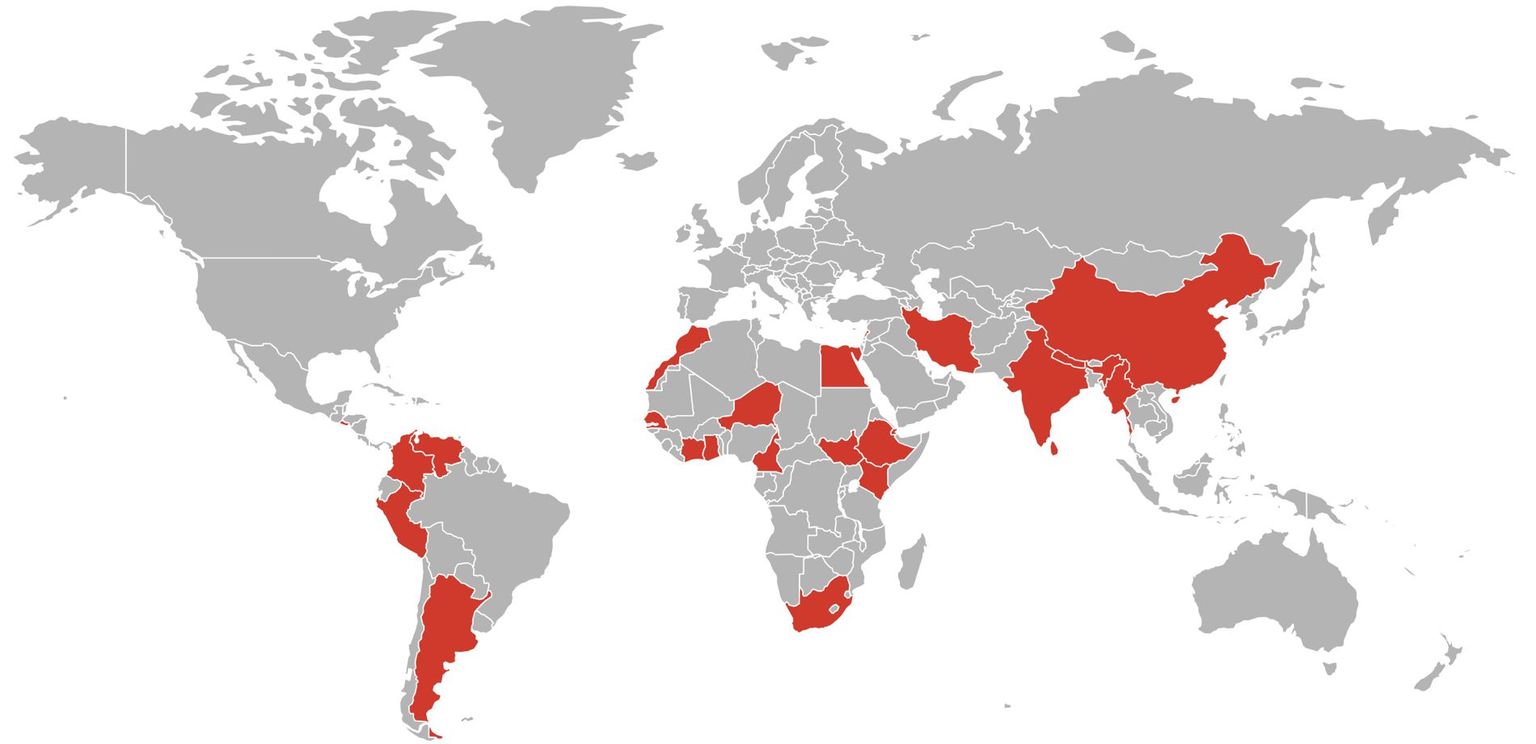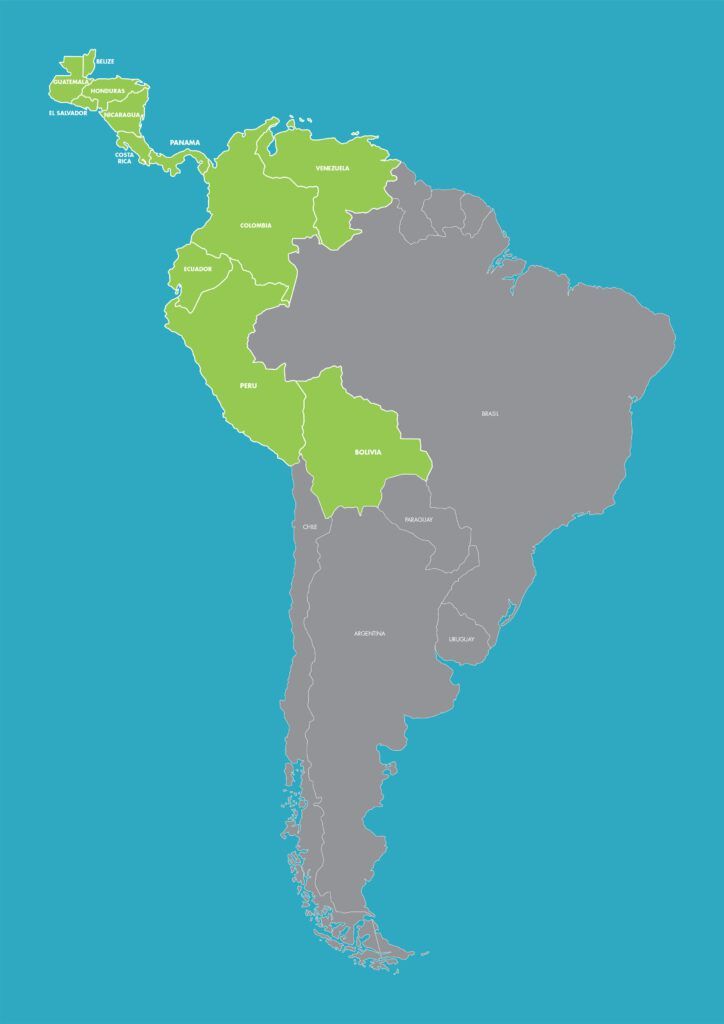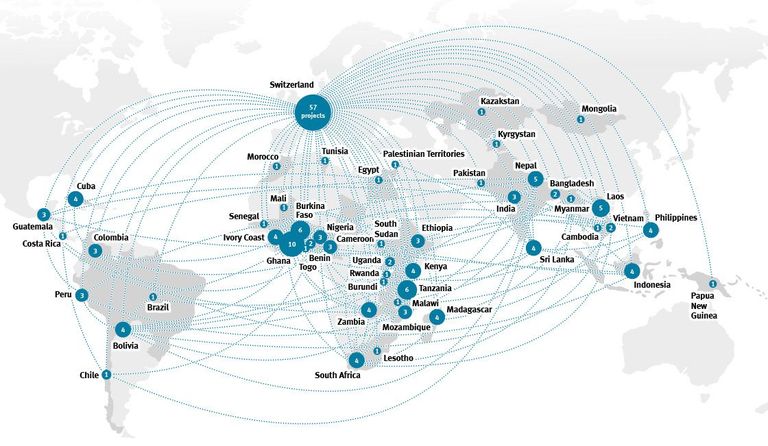Projets suisses
Solution-oriented Research for Development (SOR4D)

The Solution-oriented Research for Development (SOR4D) programme is a joint funding instrument between the Swiss Agency for Development and Cooperation (SDC) and the Swiss National Science Foundation (SNSF) that builds on experiences and lessons learnt in previous joint programmes. The SOR4D programme is being implemented in the “Decade of Action” that is accelerating efforts towards achieving the Sustainable Development Goals (SDGs) of the 2030 Agenda for Sustainable Development.
The SOR4D programme will operate from 2022 to 2026 with an overall budget of about 19 million Swiss Francs.
Bilateral Research Programmes
The Confederation's international science policy focuses on cooperation with Europe and North America, and with other countries that have a significant potential for scientific and technological development. The federal government's bilateral cooperation programmes, launched in 2008, aim to intensify research and innovation cooperation with these regions.
Joint research projects (JRPs) are conducted on behalf of the State Secretariat for Education, Research and Innovation (SERI) by the Swiss National Science Foundation (SNSF) in cooperation with funding agencies in Argentina, Brazil, China, India, Japan, Russia, South Africa, South Korea and Vietnam.
In the Leading House model, selected Swiss institutes of higher education are commissioned by SERI to set up cooperation instruments for seed funding and innovative pilot projects under the framework of the bilateral programmes. The following Leading Houses have been commissioned to run smaller pilot projects regionally in 2021 to 2024:
- North Africa and Middle East: University of Applied Sciences and Arts Western Switzerland (HES-SO)
- Sub-Saharan Africa: Swiss Tropical and Public Health Institute (Swiss TPH) in collaboration with the University of Basel
- Latin America: University of St Gallen (HSG)
- East and Southeast Asia: ETH Zurich (ETHZ)
- South Asia and Iran: Zurich University of Applied Sciences (ZHAW)
SUDAC – swissuniversities Development and Cooperation Network

The aim of the SUDAC Network is to strengthen collaborations between different types of Swiss academic institutions (Universities, Federal Institutes of Technologies, Universities of Applied Sciences, Schools of Education) active in research/education partnerships with the Global South. Together with institutions from the Global South they created an enabling environment for collaborative educational and research activities. The project focuses on a number of thematic areas with reference to the Sustainable Development Goals (Agenda 2030). The project was developed bottom up and KFPE had a leading role in the small writing team, including representatives of all types of higher education. The project started in 2017.
The SUDAC Network consists of 5 “Clusters of Cooperation in the Global South” (CLOCs), connecting hubs for regions with increased cooperation activity.
TRANSFORM
In 2020, the SDC launched a new research programme called TRANSFORM (2020–30). This programme aims to co-finance applied, inter- and trans-disciplinary research projects that have a transformative effect on society and thus accelerate implementation of the 2030 Agenda. From a call for proposals, the SDC selected four research projects:
These projects respond to concrete needs of development actors and have been initiated by consortiums composed of research institutes from Switzerland and the Global South as well as implementing partners (NGOs, governmental actors, private companies). At present, no call for proposals is open.
Swiss Network for International Studies
The SNIS promotes academic research in the interdisciplinary area of International Studies with an interest in phenomena that transcend traditional nation-state boundaries. It supports different perspectives by valuing contributions from a diverse group of academic researchers including political scientists, economists, legal scholars, social and cultural anthropologists, historians, sociologists, geographers, environmental and public health scientists, as well as other academics.
International Graduate School North-South (IGS-North-South)
The IGS North-South is dedicated to advancing sustainable development worldwide. It focuses on postgraduate education at the PhD level to establish a leading international research network that analyses the impacts and opportunities of global change. The IGS North-South emphasizes an integrative, partnership-based research approach, as well as innovation and application. More than 100 PhD candidates from around the world are currently enrolled in the programme.
The IGS North-South was developed within the National Centre of Competence in Research (NCCR) North-South. It is based on an inter-university agreement between the universities of Basel, Bern, Lausanne and Zurich in Switzerland, and selected cooperation agreements with leading universities from countries in the global South and East.
Swiss Networks for Research Collaboration
Swiss Research Institutions with long experience in partnership projects
- BFH/HAFL Hugo P. Cecchini Institute
- Centre for Development and Environment, CDE
- Centre pour le développement et la coopération, CDC
- Centre Suisse de recherches scientifiques en Côte d'Ivoire, CSRS
- Department of Geography, University of Zürich
- Department Sanitation, Water and Solid Waste for Development, Sandec - Eawag
- EPFL Sustainability
- EPFL Tech4Impact Initiative
- EPFL Excellence in Africa's Initiative
- ETH4D ETH Zürich
- ETH Global, Zürich
- Graduate Institute of International and Development Studies, IHEID
- Ingénieurs du Monde
- NADEL - Centre for Development and Cooperation (ETH Zürich)
- UNESCO Chair in ICT to develop & promote sustainable tourism in World Heritage Sites (USI)
- swisspeace
- Swiss Tropical and Public Health Institute, SwissTPH
- Wyss Academy for Nature Bern
- Centre for African Studies
- Geneva Africa Lab
Research Projects Databases
Contact
SCNAT
Commission pour le partenariat scientifique avec les pays en développement (KFPE)
Maison des Académies
Case postale
3001 Berne



